- Home
- Tanya Huff
A Peace Divided Page 4
A Peace Divided Read online
Page 4
“It might not be that complicated,” Torin offered.
“Humans First?” He rearranged the reports, files flashing across the desk. “Ressk makes a good point about the dozen crates—Human involvement, however, doesn’t necessarily mean Humans First. You captured most of the core group, and we’ve had no indication . . .” His lip curled; no indication was Warden-speak for nothing to bring them in on yet. “. . . no indication that the new membership is doing anything other than recruiting and issuing the occasional manifesto reminding us all that Humans died in the Elder Races’ war . . .”
Ignoring that Taykan and Krai died as well, Torin added silently.
“. . . and we deserve more than we’re getting.”
“They removed the apostrophe.” Torin had been willing to take them down for calling themselves Human’s First, but the Justice Department had waited until rhetoric had turned to action, waited until Human’s First had swarmed stations, killed those who stood in their way, and stolen ships with Susumi capabilities before sending her team in.
A dark brow rose. “Your point?”
“They’ve gotten smarter, and they weren’t happy about Richard Varga dying in rehab.”
Back when Richard Varga had taken control of Human’s First, he’d fed the self-entitlement of a few discontented speciesists and built them into a movement, the bulk of his recruiting aimed at veterans damaged in service. Human’s First under Varga had been too busy whining about how it wasn’t fair to organize more than random violence. Humans First, after Varga, had found a focus.
“No one was happy about Varga dying in rehab,” Ng pointed out, as though he’d followed her thoughts to the same conclusion. “His death pulled the scattered remnants of the cause together and gave them a piece of grit to recruit around—if he’d lived, they’d have died out before he finished his program.”
“Justice ruled his death natural causes.”
Ng met her gaze and held it. “The investigation didn’t find enough evidence to rule otherwise.”
Which meant only that they hadn’t found enough evidence to rule.
Nothing she could do, nothing any of them could do, but wait until Humans First crossed the line again.
“So just for fun . . .” He leaned back in his chair, fingers linked on the edge of the desk. “. . . let’s say Humans First tipped your gunrunners off. How did they know your team was on the way in?”
“Scooped our signal.” Ressk and Alamber could make code sit up and beg; they were good, better than good, but they weren’t unique. “If they’re rebuilding, they’ll want to keep as much of an eye on us as we do on them.”
“Possible.”
“And . . .” Torin had to consciously relax her jaw to get the words out. “. . . there’s always the chance that one or more of the Humans in the Justice Department is sympathetic to the cause.”
He stared at her for a long moment. “Not possible. The department runs extensive background checks on every employee.”
“Yes, sir.”
Commander Ng hadn’t been Corps, his rank might as well have been supervisor or project manager, but he’d learned to interpret the variations of that response faster than many officers ever managed. “I won’t be able to convince my superiors to have the behavior of every Human on this station examined for suspicious activity. The violations of privacy alone . . .” He rubbed his temples. “Your gunrunners included Krai and di’Taykan.”
“They could be hiring out the dirty work to less . . . uniform groups. Rebuilding in the background, setting up others to take the heat.”
The noise he made wasn’t so much agreement as acknowledgment that he’d heard her. “While it would make our jobs easier, it’s unlikely Humans First is behind every group of armed lunatics we apprehend. And remember, the burden of proof remains with us.”
Humans First. The Berin gang. Gunrunners. Centuries of war. Groups of mercenaries without names or secret handshakes. Millions of people from under-evolved species trained to violence and not all of them willing to give it up. The largest difference between those people and the Strike Teams created to bring them in was their targets, Torin acknowledged. The level of violence was much the same. “The Elder Races had a good thing going until sentient plastic got involved and they had to let the badly socialized kids join the club.”
Ng opened his mouth. Closed it again. Shook his head—although not, Torin realized, in denial. He took a deep breath and squared his shoulders, physical cues to a change of topic. One hand flat on the desk, he shuffled reports with the other. “The after actions look complete for a change. Pass on my thanks to Warden Mashona for adding details beyond the number of shots she fired, the mapped trajectories, and a complaint about her perch. If I have any questions after C&C comes in, I know where to find you.”
“I’ll leave you to your filing, then, sir.” Ng didn’t consider the sir necessary. After working under him for the last two years, Torin did. She touched her slate to his desk, signed out of the meeting, and headed for the door.
“I see Ryder offered to micro jump.”
And stopped. “It wasn’t necessary. He had no trouble tagging.”
Ng made the noncommittal hum again. “Every Strike Team pilot we have declares the need for a micro every time they go out. Gossip has the Navy putting a research vessel together, and they want Justice to make the first jump.”
“That’s good.”
Frowning, he looked up from his desk—although his hands continued moving over the surface. “What is?”
“That means even the three ex-Navy pilots on the Strike Teams consider themselves to be Wardens now.” Old loyalties could twist teams out of alignment and the lines between us and them had to be clearly drawn when live ammunition was involved.
Brows at his hairline, Ng locked his gaze on her face. “So you’re saying we should beat them to the jump?”
“Hell, no! It’s micro suicide. Let the Navy do it.”
• • •
“This place is so shiny new, I’m afraid to touch anything,” Craig grumbled as Torin closed the hatch to their quarters behind her.
Berbar, Justice’s station in MidSector Seven, had expanded when the three contract teams became six Strike Teams, resulting in forty-two new Wardens—Humans, di’Taykan, and Krai—added to the roster. Justice stations in other MidSectors were implementing teams using Berbar’s protocols.
The quarters were generous, if unimaginative, painted in muted shades of gray or blue or green for the Humans and the Krai, and considerably brighter shades of purples and yellows for the Taykan. Justice—and Torin assumed Justice in this case meant specifically the Elder Races on station—wanted its new Wardens to feel calm and serene when not actively utilizing the violent skills they needed to do the job.
Strike Team Alpha had moved into their new new quarters immediately before leaving for Three Points, and they still looked like barely finished construction. Shiny new, as Craig said.
“I keep thinking,” he added, “that I can smell wet paint.”
“Paint doesn’t smell . . .”
He turned to face her. “Depends on where you’ve salvaged it from. Pedro pulled six containers from a shipyard once. We had to evacuate half the station until it dried. And just so we’re clear on this,” he continued before Torin could respond, “I’m calling plausible deniability, so you’re hanging Bony.”
“That’s fair.” She shrugged out of her uniform jacket, crossed the room, and lifted the Silsviss skull off the entertainment center onto the installed supports. She’d had to get a special dispensation to display the remains of a sentient species, but Justice, after more meetings than anyone should have to attend, had finally been convinced that insulting the Silsviss—who had, after all, presented her with the trophy—would be a diplomatic faux pas likely to delay an already complicated integration. Back in the Corps, the b
rass had briefly considered the implications of pissing off an entire planet of warlike giant lizards and signed off on the trophy without discussion. “Given what the Ciptrans display . . .”
“Expect it’s different when you’re displaying your own species. How’d the final debrief go?”
The full team debrief occurred as soon after arrival as possible, before memories had begun to shift, but Ng liked to sit down with his Strike Team Leads, one on one. Torin suspected he’d do personal debriefs with every team member had there not been only twenty-seven hours in a day.
“No sudden insights.” She stepped back until they were standing shoulder to shoulder, staring up at the skull. “There’s too many outstanding variables to accuse Humans First of being involved. Hopefully, Finds Truth will bring back a detail we can hang an investigation on.” The Dornagain’s interrogation style reminded Torin of water against rock. In the end, water always won.
Craig leaned into her space, his arm a line of heat around her waist. “So, fifty-four hours of obligatory, post-mission down time.”
His mouth traced a warm, wet line along the curve of her throat. The rest of the team had scattered and they had space in their new quarters for a full-size bed. “I can think of a way to fill a few hours,” Torin allowed.
He hummed an agreement, the buzz against her skin lifting the hair on the back of her neck. “There’s four new episodes of Star Wardens on the EC.”
Sliding her hand under his waistband, Torin tugged him closer. “And I should hit the range.”
“Need to supervise the QSM restocking the Promise.” They separated long enough for him to drag her shirt over her head. “Last time the fukkers shorted the beer.”
“I’ve got three new Wardens who have to retake How the Justice Department Defines Excess Force and I’ll need to knock some heads together before they retain anything.” She tightened her grip and he shuddered.
“Later?”
“Works for . . . me.”
“Harveer, I’ve found something!”
Harveer Arniz roused herself out of a half nap and cautiously stretched her aching back. Maybe her department head had been right. Maybe she was too old to go tramping across the galaxy. Maybe she should have given her place on the team to a younger scholar.
“Harveer!”
She snorted. Maybe her department head was a politically motivated asshole. “What is it, Dzar?”
Across the shelter that soil sciences had claimed as their lab, Dzar bounced on her stool, tail lashing. “High levels of urea, but that’s . . .”
“That’s not unexpected.” Arniz blinked her inner eyelid, counted to three, and wondered, not for the first time, when they’d started accepting ancillary students right out of the egg. She was sure ancillaries used to be . . . older. “The soil you’re analyzing came from a sealed latrine.” The defined edges made for an easy introduction to fieldwork. They’d mapped it, recorded all flora and fauna within its perimeter, and drawn a core for soil profiling. “I’d be more surprised if you weren’t reading high levels of urea.”
“But these levels are extremely high! Carnivore high!”
Keeping her own tail still—she’d been out of the egg for more years than she wanted to recall—Arniz carefully moved around the piles of trays and half assembled equipment and waved Dzar off the stool. “Then there’s a possibility we’ve learned something new about the pre-destruction inhabitants of the city.” Adjusting the focus and silently cursing the inconvenience of elderly eyes, she ignored the quiet protest of how there hadn’t been any post-destruction inhabitants, assuming she hadn’t been intended to hear it. “The analysis of latrines can uncover a great deal of unexpected information. People dump everything, including other people, into the pri . . .” She flicked her inner eyelid closed, once, twice, and squinted at the data on the screen. “Plastic?”
“That’s what I was trying to tell you!”
“Were you? Well, then, I apologize for interrupting.”
“This is the only trace of plastic that’s ever been discovered in the pre-destruction layer! I’ve read the Mictok reports; after three years on site, they’re certain the pre-destruction civilization hadn’t reached a tech level necessary for the production of plastic.”
True enough, although that hadn’t been how they’d phrased it.
“And as all evidence suggests our site is the same age . . .”
The concurrent ages having been the reason the university had finally been given permission to begin exploration, Arniz added silently.
“. . . and as there’s been no evidence to date that civilizations in this hemisphere were any further advanced . . .”
They’d been on the plateau at the edge of the jungle for less than four tendays, much of that time spent either grumbling about the paths laid out by the botanists or arguing over how the early results by the geophysicists mapped onto observable surface features. They had a preliminary layout for the area of the city not covered by jungle, but evidence of anything else was speculative at best.
“. . . we need to ask ourselves, why is there plastic in this latrine? And not only that, it’s surrounded by components, organic polymers of high molecular mass, as though there was a higher concentration present at one point.”
“The components are hardly rare.” Arniz took advantage of Dzar’s pause for breath. “Let’s concentrate on the actual trace of plastic, shall we?”
“But, Harveer . . .” Dzar slumped, her tail tip touching the ground, when Arniz turned to glare. It was a good glare; she’d perfected it over three decades of teaching. “Yes, Harveer. But why . . .”
“First, we’re going to make absolutely certain the site wasn’t contaminated. And if it wasn’t . . .”
“It wasn’t.”
“Of course, it wasn’t. It was fifteen point two seven centimeters down in an undisturbed latrine, and I trained you. That said, you need to put together the data to prove it. Go all the way back to the initial Ministry for the Preservation of Pre-Confederation Civilizations survey. While you’re working on that, I’ll go talk to Dr. Ganes.” Ganes, an ex-Navy engineer, kept the ridiculous amount of equipment they’d dragged along with them up and running. He was also responsible for uploading communications to the university’s orbiting Susumi drones. Most of the scientists on the dig kept a wary distance from Ganes, the only member of the Younger Races on the team. Arniz appreciated his efficiency, tried to stay upwind of the damp musk the Human exuded in the heat, and thought he was too damned tall. She could see no evolutionary reason that any species needed to be much more than a meter high and no reason for the Ciptran to exist at all. As they did, and as she wasn’t an evolutionary specialist, she let it go. But not happily.
“Why talk to Dr. Ganes, Harveer?”
She blinked and shook herself free of reflections. “He needs to shift data allocation from one of the other teams. It’s not like architecture is using much.” Centuries of exposure had worn the arc of the city out on the plateau down to surface and subsurface, and, so far, subsurface referred only to foundation stones. Orbital scans had found actual buildings in the jungle, ranging from ruins of walls to intact interiors, but their permissions held them to the plateau. Harveer Salitwisi had become even more annoying than usual, knowing there were visible ruins under the canopy and yet being unable to explore them.
“We’ll upload the data about the plastic?”
“No, I thought I’d upload the urea stats, seven or eight thousand times.” When Dzar looked confused, right thumb rubbing at the smooth scales on her left inner wrist, Arniz sighed. She was a good kid, from the same southern province as Arniz, her name a sensible length rather than the random spew of letters they used in the north. Sheltered, and shy around other species, she had the makings of a halfway decent scientist; easier to work with, though, if she’d develop a sense of humor and a few less obvious ticks. “Ye
s, Dzar, we’ll be uploading all information about the plastic, about your discovery of the plastic, as well as the proof that the site hasn’t been contaminated. I want a clear and detailed procedural trail.”
“To prove that the plastic aliens were here pre-destruction . . .”
“Dzar.” Arniz cut her off. “Let’s just concentrate on the plastic you found. On the science, not on crazy theories of how the plastic aliens might be responsible for the sudden planet-wide destruction that wiped out hundreds of separate civilizations, thousands of kilometers apart.”
Dzar’s mouth dropped open, her tongue flicking out to taste the air. “I hadn’t thought of that.”
Turning her head so as not to fog the primitive, static display, Arniz sighed again. Young. So very young.
Commander Ng hadn’t been happy when Torin had informed him that if Justice wanted the Strike Teams to continue tidying up the post-war peace, their skills in controlled violence needed to be maintained. They needed more than the gym, provided for fitness and funded by denial, they needed a range. She didn’t know how Ng had convinced the Justice Department, but given how the Elder Races felt about weapons, she suspected simple logic hadn’t been enough. She also suspected Ng, a former lawyer, had enjoyed doing the browbeating even if he refused to admit it. Eventually, the Justice Committee to Examine a Proposed Expansion of Strike Team Training Facilities had agreed to add a range to the new section of the station and, in a surprising triumph of need over budget, had paid a premium to bring in the construction company used by the Corps.
Torin had no complaints about either setup or safety—the finished range was a copy of the Level 26 range on Ventris Station—but she continued to agitate for a planet-based training facility. Firing live ammo in a high-tech container surrounded by vacuum had always seemed like tempting fate; no matter that the bulkheads had been lined with an organic gel interlaced with Mictok webbing, the semisolid mass designed to absorb impact.
Given that Mictok webbing was extruded from the ass of giant, sentient spiders, Torin had never asked who or what provided the gel. As long as it worked, she was happier not knowing.

 Child of the Grove
Child of the Grove Blood Lines
Blood Lines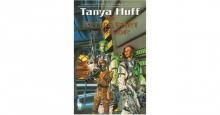 What Manner of Man
What Manner of Man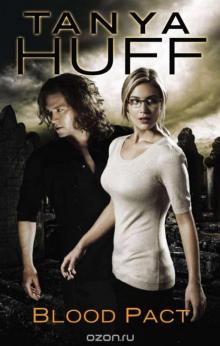 Blood Pact
Blood Pact Blood Debt
Blood Debt The Wild Ways
The Wild Ways Blood Trail
Blood Trail Blood Shot
Blood Shot Wizard of the Grove
Wizard of the Grove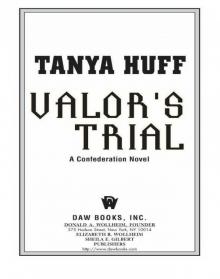 Valor's Trial
Valor's Trial The Privilege of Peace
The Privilege of Peace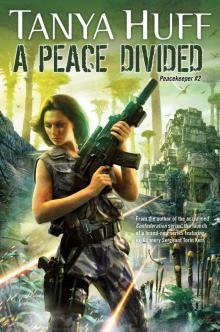 A Peace Divided
A Peace Divided Three Quarters
Three Quarters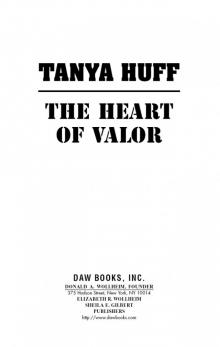 The Heart of Valor
The Heart of Valor No Quarter
No Quarter The Demon's Den and Other Tales of Valdemar
The Demon's Den and Other Tales of Valdemar Enchantment Emporium
Enchantment Emporium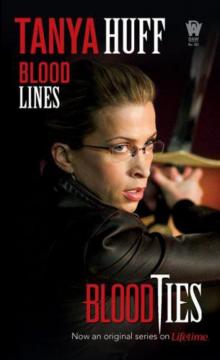 3 Blood Lines
3 Blood Lines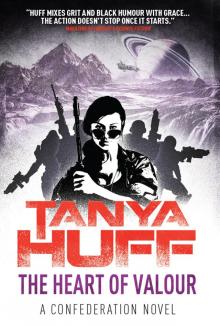 The Heart of Valour
The Heart of Valour Smoke and Ashes
Smoke and Ashes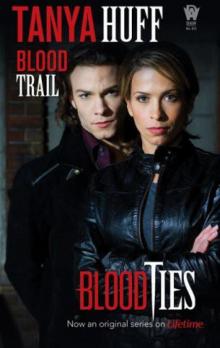 2 Blood Trail
2 Blood Trail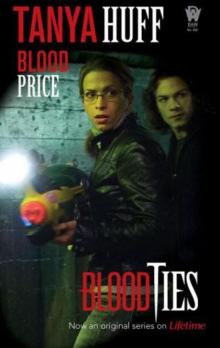 1 Blood Price
1 Blood Price Summon the Keeper
Summon the Keeper The Future Falls
The Future Falls Third Time Lucky: And Other Stories of the Most Powerful Wizard in the World
Third Time Lucky: And Other Stories of the Most Powerful Wizard in the World The Second Summoning
The Second Summoning Fifth Quarter
Fifth Quarter The Enchantment Emporium
The Enchantment Emporium An Ancient Peace
An Ancient Peace Blood Bank
Blood Bank February Thaw
February Thaw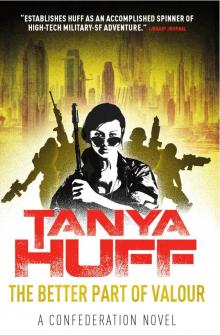 The Better Part of Valour
The Better Part of Valour The Silvered
The Silvered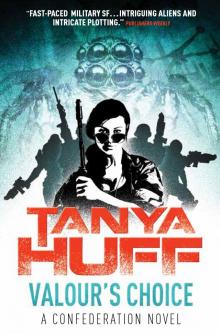 Valour's Choice
Valour's Choice Smoke and Shadows
Smoke and Shadows Sing the Four Quarters
Sing the Four Quarters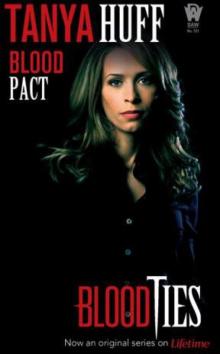 4 Blood Pact
4 Blood Pact Long Hot Summoning
Long Hot Summoning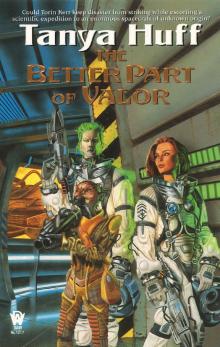 The Better Part of Valor
The Better Part of Valor Scholar of Decay
Scholar of Decay He Said, Sidhe Said
He Said, Sidhe Said Wild Ways
Wild Ways Gate of Darkness, Circle of Light
Gate of Darkness, Circle of Light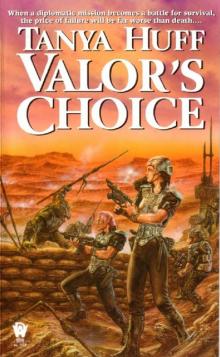 Valor's Choice
Valor's Choice Swan's Braid and Other Tales of Terizan
Swan's Braid and Other Tales of Terizan